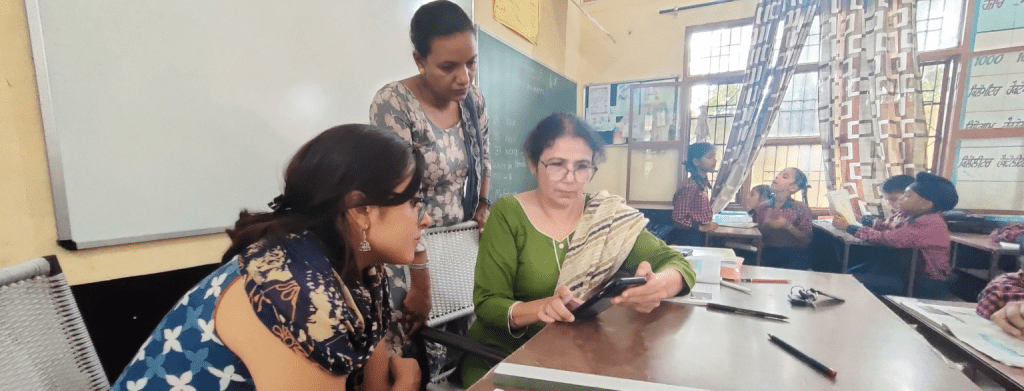Mr. Sanjay Kumar, Secretary,
Department of School Education and Literacy, Ministry Of Education
In India’s long history of learning, our journey through education has seen remarkable discoveries like the introduction of zero, revolutionary milestones in nuclear science, and many other countless innovations that have left an everlasting mark on the world.
However, as we reflect on our history, we’re confronted with a harsh reality. Millions of students, the future of our country, still struggle to get their basic right — education. Even for those lucky enough to go to school, we need to ask: Does their education enable them to thrive? Are the basic infrastructure and necessary amenities in place? Can we be sure that the children study in an environment that not only provides opportunities to learn but is also safe and healthy?

The Importance of Education
Education is more than a privilege; it stands as a vital necessity for personal growth, serving as a lifelong companion through life’s complexities. It is crucial as it shapes us, influenced by our teachers and experiences and it is an opportunity that should be available to everyone and expanded universally. The collective responsibility to provide this opportunity falls on the society to ensure that every child receives an education tailored to their unique needs, fostering a world where each individual can unlock their full potential.
Journey of the Indian Education System
Exploring the rich diversity of India’s educational history, Gurukuls stood out as ancient centres of knowledge, admired for their strengths but yet faced challenges like inclusivity, issues still relevant in today’s education ecosystem. Nalanda University, once a vibrant educational hub, was tragically extinguished in 1193, despite its rich tradition and exceptional education. In contemplating these historical junctures, a question emerges: Why did India go without universities for more than six centuries, while renowned institutions like Oxford thrived in the West?
Current Indian Education System
Presently, the school count in the country has surged to 16.6 lakhs nationwide, with 10 lakhs falling under the government or government-aided category. The Central Government oversees a mere 2000 schools, including Kendriya Vidyalayas and Navodaya Vidyalayas, while the rest are managed by state or private entities.
Despite this proliferation, we continue to struggle. There are close to 62 different school boards, each with diverse structures, study materials and assessment criterias.
While the school numbers might look impressive, the lack of fundamental structure and inadequate infrastructure raises concerns about achieving economies of scale. The educational landscape is further impaired by the complex web of primary schools, secondary schools, and higher secondary divisions, leading to substantial dropout rates. The sheer diversity of the system intensifies the challenge, particularly in government schools, where a staggering 37% have fewer than 50 students enrolled. This points to the pressing need for systemic improvements. towards a more equitable and sustainable education system.
The several scattered puzzle pieces need to be solved to restore the glory of the Indian education system.
Potential Solutions to Piece Together the Puzzle
Unlocking the potential of the Indian education system and in turn of our children’s, require a strategic approach.
- Shifting from a pyramid to a cylindrical system is the foundational step, ensuring a consistent number of students in each grade, promoting continuity, and effectively tackling dropout rates.
- Addressing the core social determinants is the next essential piece in building a holistic educational environment. This encompasses prioritising child nutrition, promoting stress-free living, and fostering supportive home atmospheres for students.
- Aligned with the principles of NEP 2020, embracing inclusive and innovative pedagogy becomes a cornerstone. This involves a shift towards learning in one’s mother tongue, acknowledging its vital role alongside English.
- Reimagining assessments, moving beyond conventional methods such as multiple-choice questions, to encourage a more comprehensive evaluation of students’ abilities and understanding.
Recognising the pivotal role of teachers in shaping the future and increased investment in teacher training, ensuring educators are equipped with the necessary skills and support.
Ultimately, a systemic GDP investment towards building a robust education system will act as the linchpin for comprehensive reform.
This approach lays the groundwork for a brighter and more equitable future, ensuring that each student receives the support and resources they need to thrive in the evolving landscape.
This is an excerpt from Shri Sanjay Kumar’s address at InvokED 3.0 – a Global Dialogue on Education Leadership organised on March 1 & 2, 2024. InvokED brought together the education ecosystem of India to shape the education movement needed to ensure that every child has a chance to dream, learn and succeed.




